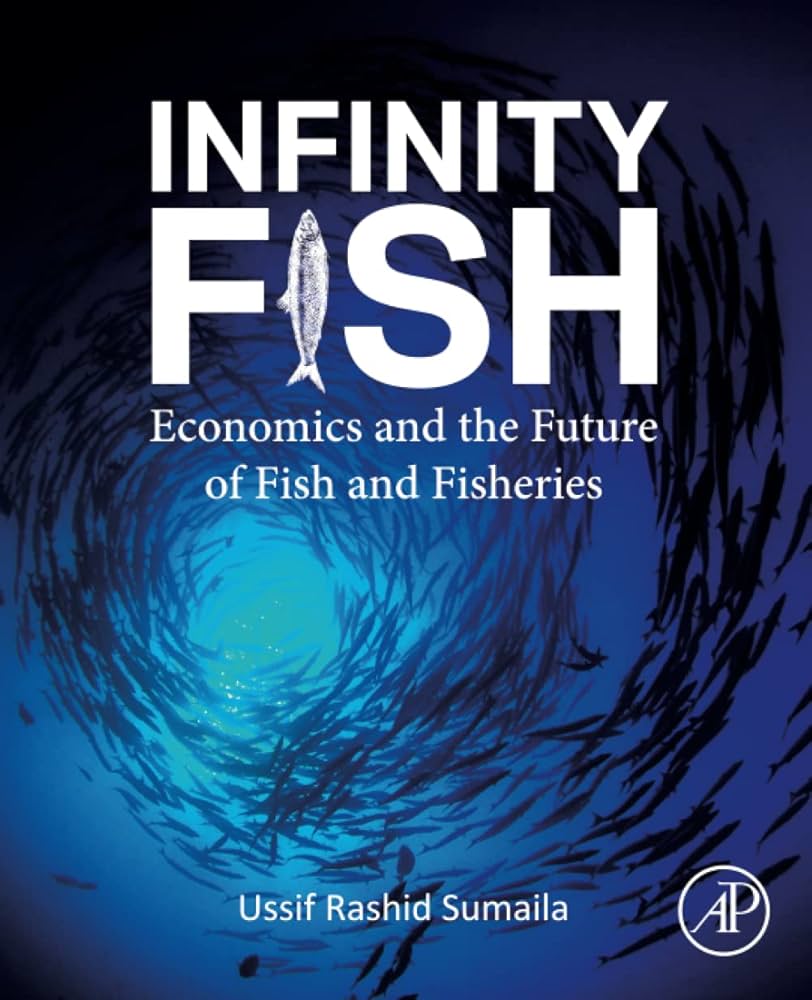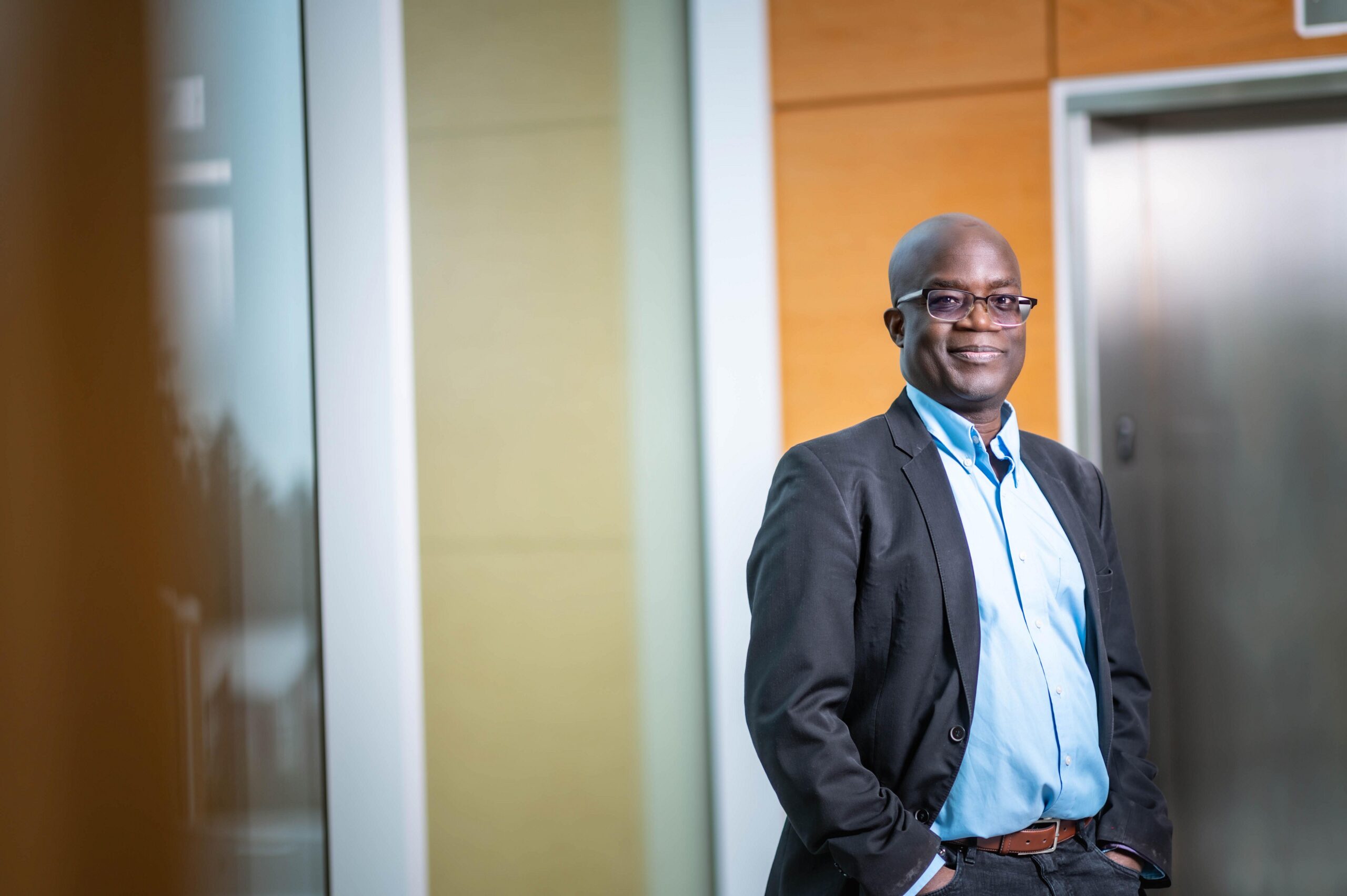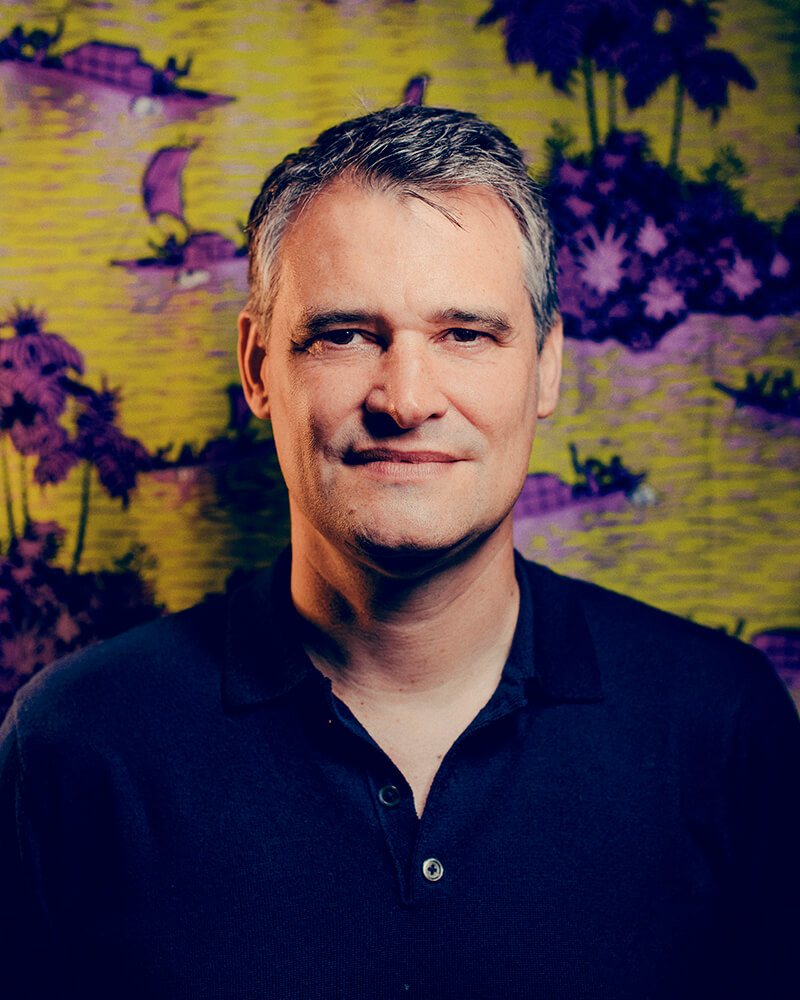Professor emeritus at the University of British Columbia (UBC), Rashid Sumaila is one of those pioneers whose exceptional journey reminds us that science can be a human adventure as much as an intellectual challenge. Recently honored with the prestigious Tyler Prize and the Prince Albert I Medal from the Oceanographic Institute of Monaco, Professor Sumaila embodies interdisciplinarity and perseverance in the service of ocean sustainability. He is also one of the Steward of 2050. Here is his portrait.
Rashid Sumaila is somewhat of a legend. When you start getting interested in ocean issues, many specialists point to his scientific work, but often without ever having met him in person. « Do you actually work with him? Is he coming to Paris soon? Can we meet him?… » The fascination is quickly evident in his interlocutors. However, to speak with or meet him, you need a good dose of perseverance and a lot of patience. With a radiant smile and a calm yet powerful voice, he exudes a sense of tranquility that masks his main internal concern: urgently changing the world’s view of the oceans, starting with its main resource, fish. The water covering 70% of our planet is emptying at such a speed that it could lose its capacity to capture CO2 and further accelerate climate change. He dedicates his life to this issue, facing immense pressures, yet remains determined to make our oceans a sustainable resource, more equitably shared between the North and the South.
From African Roots to a Canadian Anchor
Born in West Africa, Nigeria, Rashid Sumaila grew up with a deep connection to nature, inherited from his family. « My grandfather always told me to walk on the earth as if it felt pain, » he recalls. A lesson seemingly simple but carrying all the wisdom needed to embark on the path of environmental protection. This philosophy, rooted in a personal history he preserves with modesty, would become the foundation of his career.
Growing up in a region rich in natural resources but also marked by economic challenges linked to oil exploitation, Sumaila witnessed the economic and environmental complexities shaping the modern world. After his first year at university in Nigeria, he met Adebayo Adedeji, Director of Economic Development for Africa, who encouraged him to pursue economics. This mentorship proved decisive, leading him to continue his studies in Norway, where he earned a Master’s and a Ph.D. in Economics at the University of Bergen in 1996.
In Norway, the young student discovered the field of fisheries economics thanks to his supervisor, who proposed he join an innovative project. « You’ll never regret it; there are few people in this field, so go for it, » he advised passionately. This advice proved crucial, instilling the idea of an interdisciplinary approach to bring forth new concepts. Here, he combined his engineering skills with fisheries economics.
Later joining one of the world’s most prestigious academic institutions – the UBC – Sumaila made a significant leap in his career. He collaborated with renowned economists like Gordon Morrow, and together they built a solid research network. His work at UBC then extended to the global economy of fisheries, with a particular focus on subsidies and the economic dynamics of marine conservation.
Collaborative and Multidisciplinary Engagement
To understand the professor’s journey, one must constantly delve into the rare moments of his African life that he concedes to mention. Rashid Sumaila’s philosophy is deeply influenced by his father, an avid reader who instilled in him the importance of doing every task well. « My father always told me: ‘Do what you do well, and you will be good.’ Many of my friends thought I was making a foolish choice by turning to economics, but today, some of them say: ‘How could you imagine it would take you this far?' » This wisdom, combined with his education, drives Sumaila to fully engage in his research.
Beyond his scientific achievements, Sumaila is passionate about mentorship and education, especially for inclusive groups where women, ethnic minorities, and Indigenous people have a voice. He believes in the power of interdisciplinary collaboration, where governments, NGOs, and other actors can unite to find sustainable solutions. It’s a non-negotiable approach. Nothing seems to deter him more than elitism.
However, Rashid’s career has not been without challenges. Securing funding for large-scale research projects and advocating for policy changes in the face of economic resistance are significant obstacles. What is true and evident for NGOs is equally so in the circles of world-renowned scientists. Despite threats and opposition – some even telling him to « shut up » – he continued his work with a smile he seems never to part with. His ability to gather and motivate diverse teams has earned him global recognition, notably in the « See Around Us » project involving over 500 people worldwide, perfectly reflecting his personality: Behind his good humor and calm demeanor lies steely tenacity. These traits are behind his numerous achievements and the back to back international recognition.
2023: The Year of Distinctions
Last year, the scientific and environmental world recognized his work twice: First, with the University of Southern California’s Tyler Prize for Environmental Achievement – considered the Nobel Prize for the environment – shared with his friend and UBC colleague, marine biologist and author Daniel Pauly. The two professors took the opportunity to reiterate their main message: « All high seas fishing should be banned. » The organizers highlighted « their work to safeguard the lungs of our planet. » Then with the Prince Albert I Medal from the Oceanographic Institute of Monaco. Awarded in November 2023, this medal represents the highest distinction given by the institute for significant contributions to the physical and chemical sciences of the oceans.
During the ceremony held at the Oceanographic Museum of Monaco in the presence of His Serene Highness Prince Albert II of Monaco, Sumaila emphasized the method that brought him there rather than the result: « This award is a reconfirmation of the importance of focus, hard work, determination, and persistence. If you keep pushing collaboratively, your community – and sometimes even the world – will eventually notice. » Once again, this distinction, received with the discreet but fundamental presence of his wife, underscores both the quality of his scientific achievements and the interdisciplinary approach and determination that have marked his career.
Back at the gates of the wild nature of western Canada, Sumaila focuses on the economic impacts of marine protected areas and advocates for the creation of a global fish bank. He aims to mitigate the negative effects of harmful subsidies leading to overfishing and environmental degradation. His future goals include influencing global policies to promote sustainable fishing practices and marine conservation, both critical elements for ocean preservation and, thus, the human species’ ability to inhabit our planet. Among his pioneering achievements on the subject, his 2016 contribution to establishing a protected area in Antarctica stands out. Just before the end of President Obama’s term, Sumaila, with John Kerry, managed to convince China and Russia to sign the protection protocol.
A Daily Obsession
Rashid Sumaila’s work is a testament to the power of dedicated research and passionate advocacy. His contributions to environmental science and economics have not only advanced our understanding of marine ecosystems but also paved the way for a more sustainable future. As he continues his work, Sumaila remains a joyful inspiration in the fight to protect our planet.
« Dr. Sumaila doesn’t just ponder in his ivory tower. He directly impacts the field he studies while making tangible impacts at the university, » comments Professor Allison Macfarlane, Director of the School of Public Policy and Global Affairs at UBC. « He tirelessly works towards a more equitable, just, and sustainable world. Rashid is a role model for us all. »
For some, the suit might be too big. For others, this shower of recognition would have inflated an ego excessively. But the Professor remains grounded in the real world. Each morning, his obsession remains « to contribute to leaving a healthy ocean, teeming with life, for future generations so they too can have the opportunity to do the same. » A simple yet powerful idea that must shed light on the urgent need to apply a sustainable approach to the ocean issue.

Note: Rashid is the author of the critically acclaimed book “Infinity Fish, Economics and the Future of Fish and Fisheries” published by Academic Press. Know more about it here.

